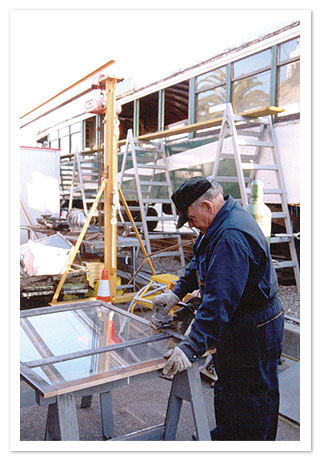An interesting transit idea: volunteers
In a previous blog entry, ""Self-help" in transit," Cableflame commented:
Hmm... does WMATA have a Transit Volunteer program in place? I think they should... I'd be willing to do volunteer work for them. And such a system would require initial investment (training volunteers) but would save them money in the end, and let those of us who love transit get to be involved with it more... and we could learn more about the inner workings of the transit systems we love so much. I'm always looking for more information about what WMATA's up to...
It's an interesting idea, along the lines of "don't ask your country what it can do for you, ask what you can do for your country." Certainly there is tremendous opportunity here, certainly for marketing transit, teaching people how to use it (I frequently go up to people and explain to them why the blue farecard machines are stumping them, pick up newspapers strewn on the floor of a subway car--although I was defeated last night coming back from College Park, there were so many that it seemed hopeless, I didn't know where to begin).
I do know that the Market Street Railway group in San Francisco relies in part on volunteers to maintain the historic streetcars used in the SF system. See the "About us" section, "Without us, it would be a bus," from the website.
 Volunteer working on the restoration of a streetcar for the Market Street Railway (their photo).
Volunteer working on the restoration of a streetcar for the Market Street Railway (their photo).And that the McKinney Avenue Transit System in Dallas again is based in part on volunteers. See "Become a member or volunteer" page of the website which states:
Volunteer participation is welcome in all areas of operations: Trolley operators, conductors, mechanics, electricians, administrators, public relations and more. Whatever your specialty, there is a place for you.
And of course streetcar museums too, are great places for transit jockeys, which I guess are called "foamers" (clearly for "foaming at the mouth"). Although sometimes groups like these can be fan groups that don't reach out very well to others.
What do you think?
I think it could help humanize the system more, especially because it has such a military-like organization. (The first president, Jackson Graham, came from the Army Corp of Engineers.) Plus the industrial setting, unionized workforce very much organized on a labor vs. management vs. labor orientation is an issue as well.
Index Keywords: transit; civic-engagement



0 Comments:
Post a Comment
<< Home